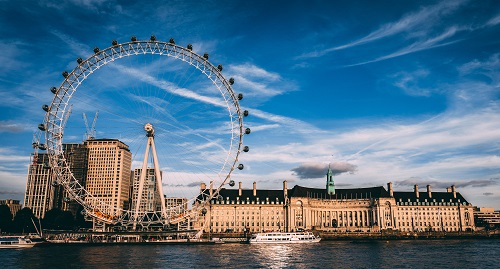Inflation-adjusted house prices were down by 4.21% during 2022
The UK’s housing market continues to lose steam, amidst slowing economic growth. Real house prices fell by 4.21% in 2022 from a year earlier, in stark contrast to the annual growth of 5.5% in 2021. It was its biggest year-on-year decline since 2008. Quarter-on-quarter, real house prices fell by 5.24% during the latest quarter.
Yet in nominal terms, UK house prices actually rose by 4.77% during 2022, still a slowdown from a year-on-year increase of 10.14% in 2021. The wide difference between the nominal and real figures was mainly attributed to soaring inflation. In January 2023, nationwide inflation stood at 10.1%, from just 5.5% in the same period last year.
 Demand and construction activity falling
Demand and construction activity falling
Residential property transactions (seasonally-adjusted) in the UK fell by 14.9% y-o-y to 1,262,090 units in 2022, following a 42.8% growth during 2021, according to HM Revenue & Customs. In England, which accounts for more than three-fourths of all transactions, residential property sales dropped 15.5% to 1,067,260 units in 2022 from a year earlier.
Despite slowing demand, the UK’s chronic housing shortage continues to drive the country’s continued house price growth, aggravated by a decline in residential construction activity in the past two years due to coronavirus-related restrictions. The government aims to build 300,000 new homes every year but in 2021, there were only 216,490 new additional dwellings in England, down 11% from a year earlier, according to the Ministry of Housing, Communities & Local Government. Then in Q3 2022, dwelling completions fell further by 4% y-o-y to 42,950 units.
Rents, rental yields: London yields are moderately good, at 5.47%
| UK: city centre apartment buying price, monthly rent (2-BR apartments) | |||
| Buying price | Rate per month | Yield | |
| Westminster | £1,250,000 | £5,352 | 5.14% |
| Wandsworth | £ 637,000 | £2,850 | 5.37% |
| Lambeth | £ 575,000 | £2,500 | 5.22% |
Recent news. The UK economy grew by 4% in 2022 from a year earlier, mostly a result of the continued recovery from the pandemic-related weakness in 2020 and 2021, according to the UK Parliament. This following a huge decline of 11% in 2020 and a strong growth of 7.6% in 2021.
Though the economy will likely slow sharply this year. The British Chambers of Commerce (BBC) expects the UK economy to avoid a technical recession, but will contract by 0.3% this year before returning to growth in 2024. The International Monetary Fund (IMF) is a bit more pessimistic, projecting a decline of 0.6% this year.
In February 2023, the Bank of England (BoE) raised its key interest rate further by 50 basis points to 4%, its tenth consecutive rate hike since December 2021, in an effort to meet its inflation target of 2%. It is now the highest level since late-2008.